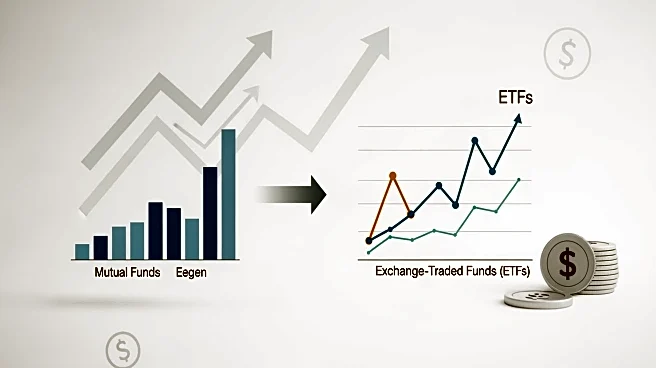What's Happening?
Asset managers are increasingly converting mutual fund strategies into exchange-traded funds (ETFs) to capitalize on the growing popularity of ETFs among investors. According to Morningstar, 56 mutual funds were
converted to ETFs in 2024, a significant increase from 15 in 2021. This trend is driven by the advantages ETFs offer, such as tax efficiency and lower fees, which appeal to retail investors. Additionally, more than 80 asset managers have sought permission from the Securities and Exchange Commission (SEC) to launch ETF share classes of their existing mutual fund portfolios. The SEC approved the first application for Dimensional Fund Advisors on September 29, 2025.
Why It's Important?
The shift from mutual funds to ETFs reflects a broader trend in the investment landscape, where investors are increasingly favoring the flexibility and cost-effectiveness of ETFs. This transition could significantly impact the mutual fund industry, which has seen a withdrawal of $388 billion, while ETFs attracted $1.1 trillion in 2024 alone. The move towards ETFs is expected to benefit retail investors by providing more transparent and tax-efficient investment options. As ETFs continue to gain market share, asset managers are likely to focus more on developing ETF products, potentially reshaping the fund market dynamics.
What's Next?
As the trend of converting mutual funds to ETFs continues, more asset managers are expected to seek SEC approval for ETF share classes. This could lead to a proliferation of ETF offerings, providing investors with a wider range of investment options. The SEC's role in approving these conversions will be crucial in determining the pace at which this transition occurs. Additionally, financial advisors may increasingly recommend ETFs over mutual funds, especially for taxable accounts, due to their tax advantages. The ongoing government shutdown could delay further SEC approvals, but the demand for ETFs is likely to persist.









